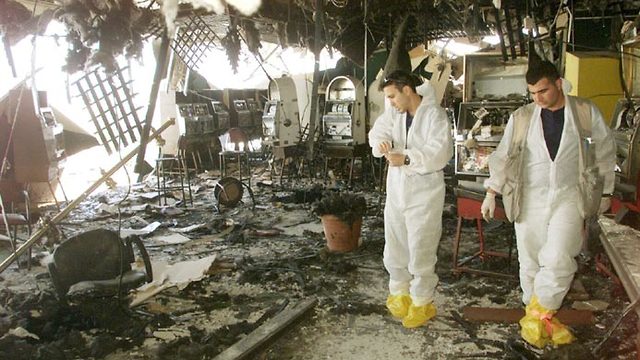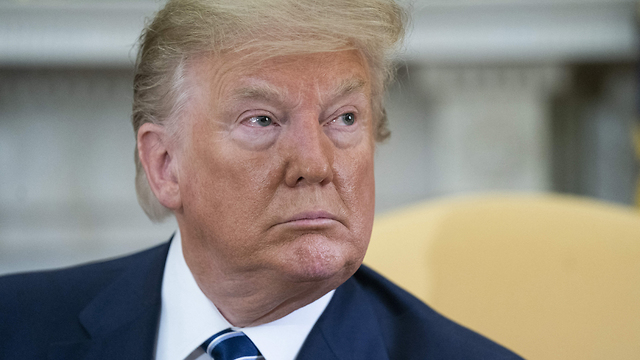
Donald Trump's dangerous deal
Opinion: By ignoring the core political issues and focusing on the economy, the American president is going down the same failed path that ultimately led to the Second Intifada
The economic workshop that the U.S. government intends to hold in Bahrain this week as a first step toward "the deal of the century" for Middle East peace comes with a headline that sounds promising, on paper at least.
But when you scratch the glittery surface, you discover that this deal contains hidden inside a great and bloody threat for both Israel and the Palestinians.
When the American president decided that the first part of his peace process would be called "peace to prosperity" and would start with an economic workshop, the flashing warning light should have come on for every Israeli and Palestinian familiar with the last 30 years of conflict.
This is nothing more than a new exterior for the same failed format that was once called "economic peace" and even earlier "the new Middle East" - a term optimistically used to describe the hopes for the 1990s Oslo Accords.
The attempt to approach this complicated process through economics isn't simply another tactical mistake -- one of the many that have characterized every attempt for talks since the Oslo Accords - it is also a strategic mistake with potential for real disaster.
If Donald Trump or his team had studied the history of the Israeli-Palestinian negotiations, they would have realized that an attempt to start with the economy before discussing the core issues of the conflict is nothing but a slap in the face of Palestinians and a complete misreading of their national aspirations.
Had it been possible to "buy" the Palestinians, and have them abandon their national aspirations, there is no doubt that this would have already occurred. We are speaking then of a thought process that is not only immoral, it also lacks all feasibility.
The consequences of this way of thinking can be seen as far back as the Oslo Accords, when the 1994 Paris Protocol, which dealt with economic aspects, was followed by the 1994 Cairo Agreement, which dealt with security.
Neither dealt with core issues, and this shortcoming led to the ultimate failure of Oslo and in the longer term to the outbreak of the Second Intifada (2000-2005). The Second Intifada did not break out because of economic reasons, but because the political objectives were not clear.

And this is the grave danger that looms before us now too. The fact that Trump placed the economy at the center of his proposal, and that he is trying to jump start the whole process in this way, comprises a return to the critical mistakes of the Oslo Accords. There's no point in starting out if the end goal is not defined from the beginning.
For both the Palestinians and the State of Israel, this goal must be the end of the occupation and, with the necessary exchange of territory, the establishment of a Palestinian state next to Israel along the 1967 borders.
Without both sides and any mediators stating this goal clearly at the outset, there's no point setting forth.
The road to hell is paved with good intentions. Except that in the case of the Trump plan, it is not clear if the intentions are good, or if in reality the American president is just giving Prime Minister Benjamin Netanyahu a political cudgel so that the latter can win the endless blame game and paint the Palestinians, again, as refusers of peace.
However, this gift is liable to drag all sides and the whole region into an escalation of violence that will set back the possibility of a productive dialogue by many years.
And so each one of us, and certainly each Israeli leader – anyone who hopes to end the conflict, to guard Israel's security, and to avoid another round of bloodletting – should hope and perhaps also demand that Trump stop emphasizing the dangerous idea of the economy first.
Therefore, even the election campaign that is bearing down on us cannot be run like the last one, in a made-up reality where Palestinians supposedly don't exist. Any Israeli politician who runs away from these issues is simply not fit to lead.
Ami Ayalon is the former head of the Shin Bet security service and former commander-in-chief of the Israel Navy











